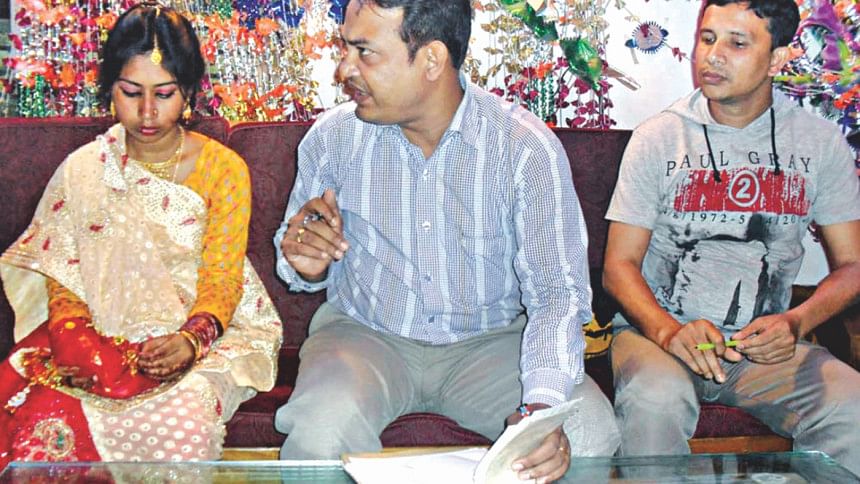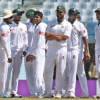18 years as per law, 16 years in rules

Although the minimum marriageable age of girls will remain unchanged at 18, a rule of the proposed Child Marriage Restraint Act would allow girls, aged 16 to 18, to get married under special circumstances, with permission from courts or their parents.
“The clause will be there in the rules. It would clearly state under what circumstances the clause could be applied,” State Minister for Women and Children Affairs Meher Afroze Chumki told a policy dialogue titled “Prevention of Child Marriage in Bangladesh”.
Bangladesh Medical Research Council (BMRC) hosted the event at its office in the city's Mohakhali yesterday.
Under the Child Marriage Restraint Act, 1929, the minimum marriageable age of girls is 18 now.
In Bangladesh, around 65 percent girls are married off before they reach 18, according to the State of the World's Children 2015, a Unicef report.
Chumki said people won't be able to use the clause at their whims. It could only be used when “unwanted situations” occur such as pregnancy before marriage or elopement of underage girls with their lovers which undermine their families in the society, she added.
Argentina Matavel Piccin, country representative of UNFPA, said: “As a development partner of the country, we will really discourage any exception.” She stressed the need for comprehensive sexual education for young people to make them aware about unwanted pregnancy.
Echoing the views of Matavel, Canadian High Commissioner to Bangladesh Benoît-Pierre Laramée Matavel said the law should leave no room for interpretation.
Ayesha Khanom, president of Bangladesh Mahila Parishad, said the patriarchal society is the main reason behind child marriage since such an attitude refuses to provide women with equal rights.
Gowher Rizvi, international affairs adviser to the prime minister and also the chief guest of the event, emphasised the need for setting up more safe and community houses where victims of rape and sexual assault could find shelter and learn to be independent as they are ostracised by the society.
Rose-Anne Papavero, chief of the child protection section of Unicef, said the social service department under the social welfare ministry would soon launch a 24-hour Child Help Line to connect resource persons in every upazila to take action on child-related issues.
Moderated by BMRC Chairman Mahmud Hasan, lawmaker Md Habibe Millat, vice-chairman of BMRC, presented the keynote at the programme.
Talking to the Daily Star about the exception to the proposed law, Executive Director of Manusher Jonno Foundation Shaheen Anam questioned, “If it is not in the law, how can it be put in the rules?”
“The most important consideration should be the well-being of girls in the long term. We have to think whether marrying off a girl with someone she has had a relationship with would bring long-term well-being for her or not,” added the rights activist.
Sara Hossain, honorary executive director of Bangladesh Legal Aid Services Trust, said: “It's not clear how, if there is no discretion in the law itself, the exception could be permitted in the rules which have not been framed yet.”
She also observed that there should be a consistency in defining a child in the laws of the land.

 For all latest news, follow The Daily Star's Google News channel.
For all latest news, follow The Daily Star's Google News channel. 







Comments